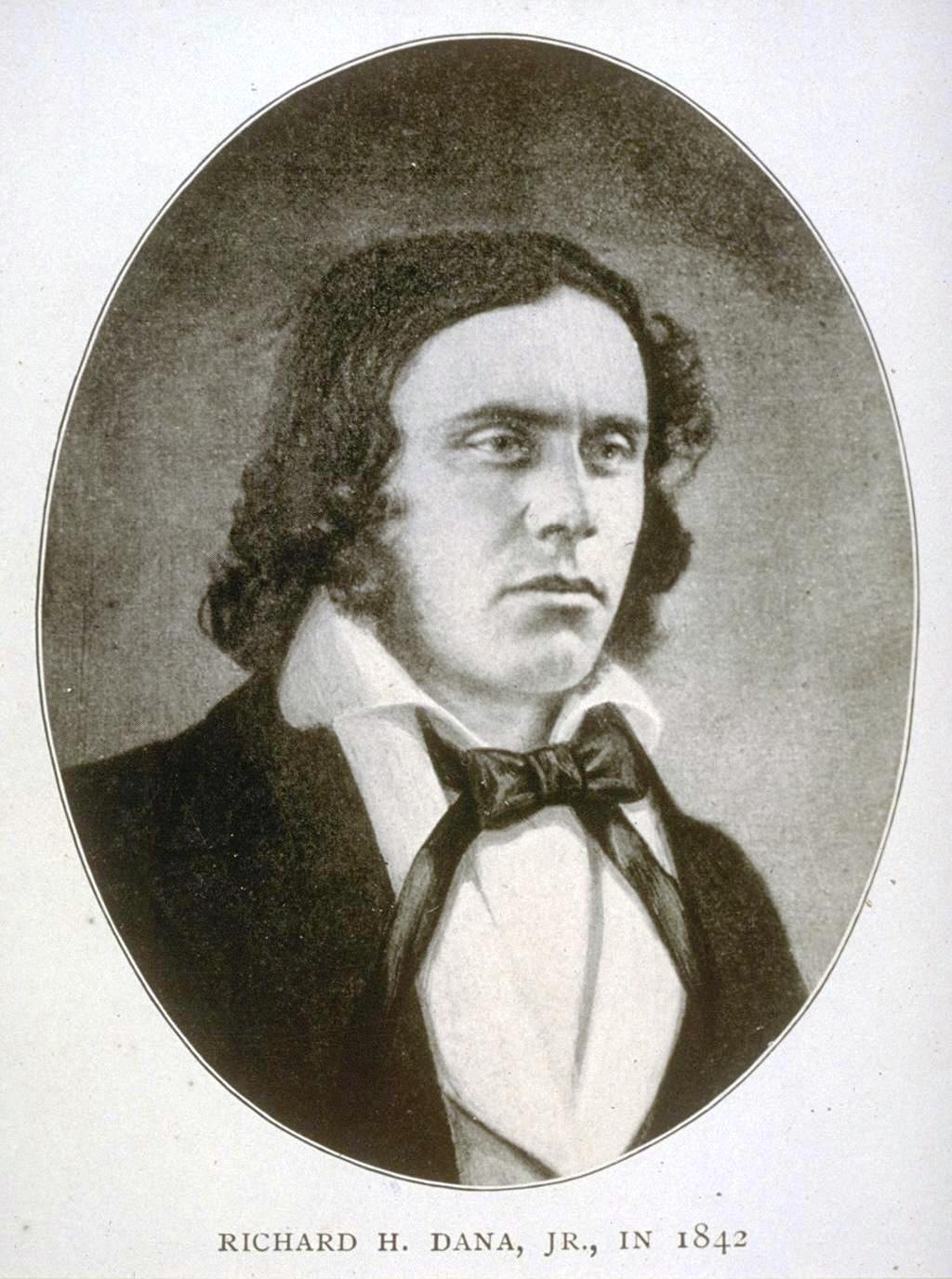Richard Henry Dana Jr. è stato uno scrittore e navigatore statunitense.
Figlio del poeta e giornalista Richard Henry Dana Senior, dopo aver abbandonato nel 1834 gli studi a Harvard , a 19 anni si decise ad andare per mare, imbarcandosi a Boston come marinaio semplice.
Scrisse quindi il libro considerato un vero classico delle letteratura nautica Two Years Before the Mast. A Personal Narrative of Life at Sea , cronaca di una navigazione durata due anni intorno al continente americano all'epoca della corsa all'oro.
Durante il viaggio, da Boston fino in California , Richard doppiò Capo Horn. Uno dei primi esempi di narrativa di questo genere, servì da apripista ad una generazione di romanzieri del mare, a cominciare dall'Herman Melville di Moby Dick.
Per la prima volta senza eccessi di romanticismo e avventurismo, ma con descrizioni efficaci del lavoro giornaliero, dei rischi della navigazione e di rapporti con il comando, le vicende marinaresche acquistano una forma letteraria di stampo realistico e tuttavia ispirata, con il ritratto dei capricci umani e di quelli pericolosi del mare che fecero apprezzare il libro dal grande pubblico, tanto da decretarne nel 1840 l'enorme successo.
Twenty-Four Years After riprende il viaggio principale verso la California come una sorta di ragionamento su quei tempi americani .
The Seaman's Friend , il libro successivo, affrontò le caratteristiche e le tecniche della navigazione, comprese indicazioni di diritto internazionale. Infatti al suo ritorno Dana si laureò in legge, specializzandosi in diritto marittimo.
Divenne poi un attivo sostenitore dell'Abolizionismo negli Stati Uniti d'America, aiutando a fondare il partito contrario alla schiavitù Free Soil Party nel 1848 e prendendo la difesa legale dello schiavo in fuga Anthony Burns, nel processo di Boston del 1854.
Nel 1853 rappresentò William Green Morton, scopritore delle proprietà anestetiche dell'etere dietilico, nel suo tentativo non riuscito di brevettarne l'uso.
Nel 1859 Dana visitò anche Cuba, che in quel momento si dibatteva in Senato se inserire tra gli USA.
To Cuba and Back è il resoconto del viaggio, con descrizioni entusiaste della città di Avana, delle piantagioni di canna da zucchero, di combattimenti di tori, con descrizioni di chiese, ospedali, scuole e prigioni, e ragionamenti sull'influenza spagnola e sulla cultura specifica dell'isola.
Journal of a Voyage Round the World, 1859–1860 , racconta i 14 mesi di circumnavigazione che portò Dana in California, Hawaii, Cina, Giappone, Malaysia, Ceylon, India, Egitto ed Europa. Con la consueta curiosità e attenzione descrittiva, il diario ritrae anche alcuni eventi storici, come la vita di frontiera dei cercatori d'oro californiani, i rapporti consolari con le isole Hawaii, la seconda guerra dell'oppio in Cina, lo sviluppo del mercato internazionale grazie al nascente telegrafo e alla maggiore velocità delle navi a vapore rispetto a quelle a vela.
Ricoprì anche qualche carica politica minore e sperava di intraprendere una carriera diplomatica che non gli fu concessa. Morì a Roma e fu sepolto nel cimitero acattolico di Roma.
Tra le sue opere anche un suo An autobiographical sketch, 1815-1842 e il suo The journal .
Lontano dall'arte narrativa e dall'immaginazione di Conrad, Stevenson o Melville, come pure dagli slanci di certe poesie di Marianne Moore e altri, le caratteristiche della sua opera furono l'essenzialità quasi giornalistica nel descrivere gli avvenimenti di bordo e la precisione tecnicamente ineccepibile dei particolari di navigazione.
Wikipedia
✵
1. Agosto 1815 – 6. Gennaio 1882
